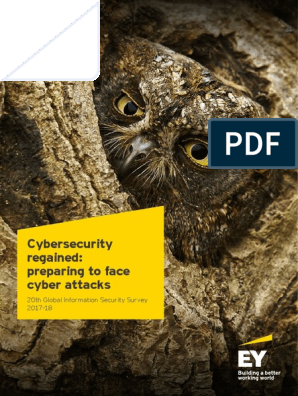0% found this document useful (0 votes)
115 views12 pages2020 Global It Ot Convergence Global Crisis White Paper
Uploaded by
Com DigfulCopyright
© © All Rights Reserved
We take content rights seriously. If you suspect this is your content, claim it here.
Available Formats
Download as PDF, TXT or read online on Scribd
0% found this document useful (0 votes)
115 views12 pages2020 Global It Ot Convergence Global Crisis White Paper
Uploaded by
Com DigfulCopyright
© © All Rights Reserved
We take content rights seriously. If you suspect this is your content, claim it here.
Available Formats
Download as PDF, TXT or read online on Scribd
/ 12









































































































